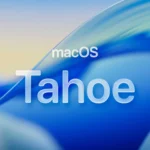SEO and Google EAT. What it is and why it is important?

In the ever-evolving landscape of search engine optimisation (SEO), Google’s guidelines play a crucial role in determining how websites rank in search results. Among these guidelines, the concept of EAT—Expertise, Authoritativeness, and Trustworthiness—has emerged as a cornerstone for content creators and webmasters aiming to enhance their online presence. Understanding and implementing EAT principles can significantly impact a website’s visibility and credibility. This article delves into the EAT guidelines, offers strategies for building authority and trust in your online content, and explains why each point is vital for every business.
What is EAT?
EAT stands for:
- Expertise: This refers to the level of knowledge and skill that content creators possess in their respective fields. Google favours content that is produced by individuals or organisations with recognised expertise, especially in areas that can significantly impact a person’s health, finances, or safety.
- Authoritativeness: This aspect focuses on the credibility of the website and its content creators. A site is considered authoritative if it is recognised as a go-to source of information in its niche. This can be established through backlinks from reputable sites, mentions in industry publications, and positive user reviews.
- Trustworthiness: Trust is essential for any website, particularly those that handle sensitive information or transactions. A trustworthy site is transparent about its policies, provides accurate information, and has a secure browsing experience (e.g., HTTPS).
Why EAT Matters
Google’s algorithms are designed to deliver the most relevant and reliable results to users. By prioritising EAT, Google aims to ensure that users receive high-quality content that they can trust. Websites that demonstrate strong EAT are more likely to rank higher in search results, leading to increased traffic, engagement, and conversions.
Importance of EAT for Every Business
- Competitive Advantage: In a crowded marketplace, demonstrating expertise and authority can set your business apart from competitors. Customers are more likely to choose a brand they perceive as knowledgeable and credible.
- Customer Trust: Trust is a cornerstone of customer relationships. Businesses that prioritise EAT are more likely to build lasting relationships with their customers, leading to repeat business and referrals.
- Improved SEO Performance: Higher rankings in search results lead to increased visibility, which can drive more organic traffic to your website. This is crucial for businesses looking to expand their reach and grow their customer base.
- Enhanced Reputation: A strong EAT profile contributes to a positive brand reputation. Businesses that are seen as trustworthy and authoritative are more likely to receive positive reviews and recommendations.
Building EAT: Strategies for Success
1. Showcase Expertise
- Author Bio: Include detailed author bios that highlight qualifications, experience, and credentials. This helps establish the expertise of the content creator.
- Importance: Customers are more likely to trust content written by recognised experts, which can lead to higher engagement and conversion rates.
- Citations and References: Use credible sources to back up claims and provide references to studies, statistics, and expert opinions. This not only enhances the content’s credibility but also demonstrates a commitment to accuracy.
- Importance: Providing well-researched information can position your business as a thought leader in your industry, attracting more customers.
2. Establish Authoritativeness
- Quality Content: Focus on creating high-quality, in-depth content that addresses the needs and questions of your target audience. This can include blog posts, articles, videos, and infographics.
- Importance: High-quality content not only improves SEO but also keeps users engaged, increasing the chance of conversions.
- Backlinks: Work on acquiring backlinks from reputable websites in your industry. Guest posting, collaborations, and partnerships can help build your site’s authority.
- Importance: Backlinks from authoritative sites signal to search engines that your content is valuable, improving your rankings and visibility.
- Engagement: Foster engagement through social media, forums, and community discussions. Being active in your niche can enhance your reputation and authority.
- Importance: Engaging with your audience builds community and loyalty, which can lead to increased customer retention and advocacy.
3. Build Trustworthiness
- Secure Website: Ensure your website uses HTTPS to protect user data and enhance security. This is a critical factor for trust, especially for e-commerce sites.
- Importance: A secure website reassures customers that their information is safe, which is essential for businesses that handle sensitive data.
- Transparent Policies: Clearly outline your privacy policy, terms of service, and any other relevant information. Transparency builds trust with users.
- Importance: Customers are more likely to engage with businesses that are open about their practices, leading to higher conversion rates.
- User Reviews and Testimonials: Encourage satisfied customers to leave reviews and testimonials. Positive feedback from real users can significantly enhance your credibility and trustworthiness.
- Importance: Authentic reviews and testimonials serve as social proof, reassuring potential customers about the quality of your products or services and encouraging them to make a purchase.
4. Strengthen Expertise with High-Quality Content
Creating high-quality content is one of the most effective ways to strengthen your expertise and establish your business as a trusted authority in your field. This involves not only producing well-researched articles and resources but also ensuring that the content is engaging, informative, and tailored to the needs of your audience. Incorporating various formats, such as videos, infographics, and podcasts, can enhance user experience and cater to different learning preferences. Additionally, regularly updating your content to reflect the latest trends, research, and industry developments demonstrates your commitment to providing accurate and relevant information. By consistently delivering valuable content, you not only showcase your expertise but also foster a loyal audience that turns to your website as a primary source of information, ultimately driving traffic and conversions.
Conclusion
In the competitive world of SEO, adhering to Google’s EAT guidelines is essential for building authority and trust. By focusing on expertise, authoritativeness, and trustworthiness, content creators and webmasters can improve their chances of ranking higher in search results and establishing a credible online presence. As search engines continue to evolve, prioritising EAT will remain a fundamental strategy for success in the digital landscape. Embrace these principles, and watch your website thrive in the eyes of both users and search engines alike.





Comments